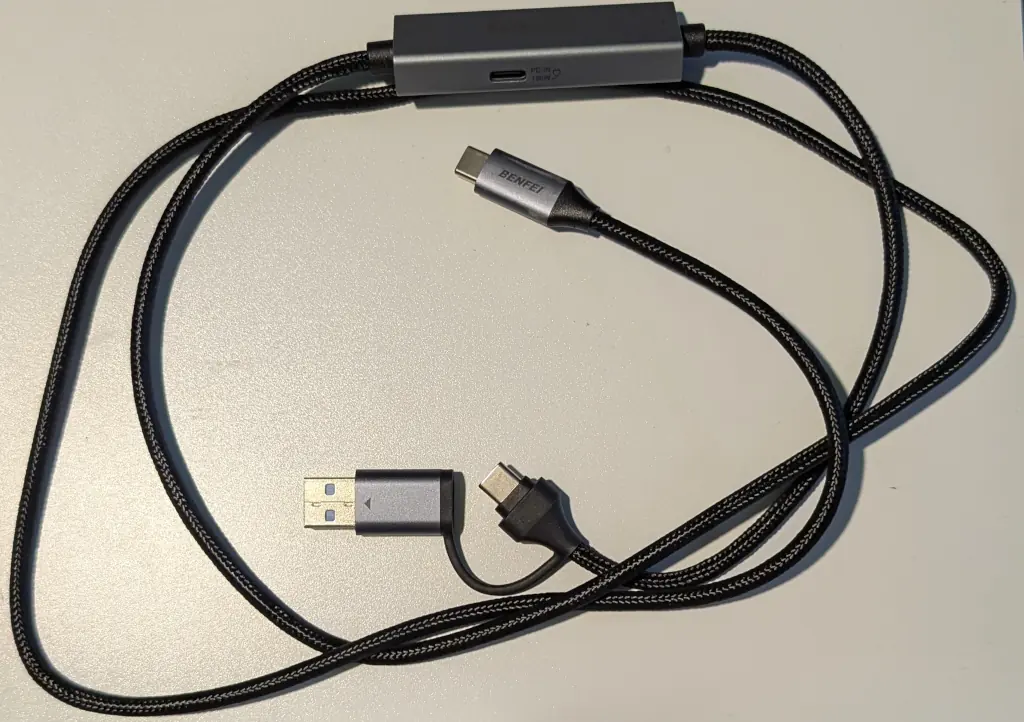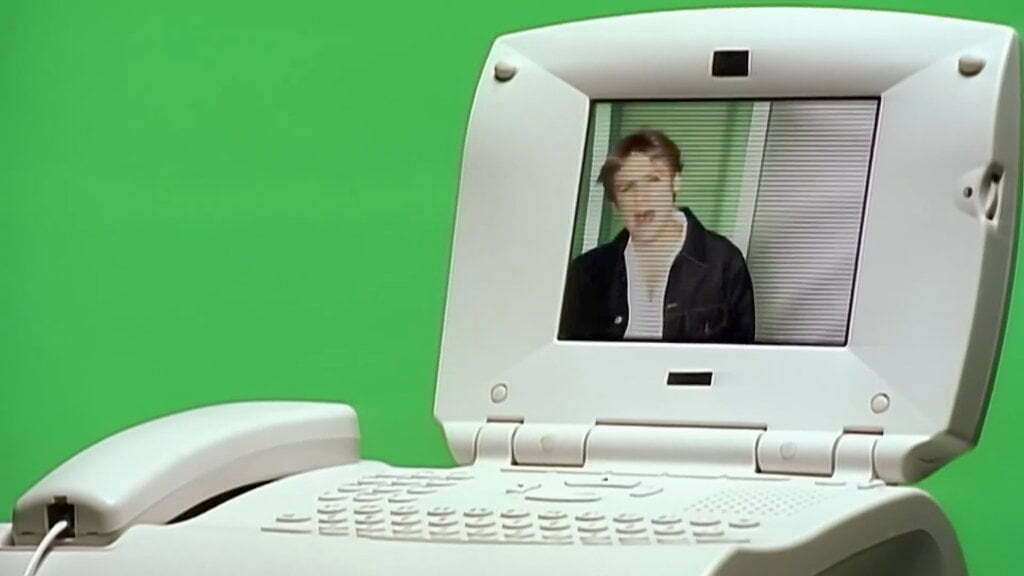
Want to capture video from your phone or console? You could just point a camera at the screen, but a more sensible way to do it is to capture the video directly via USB-C. The good folks at Benfei have sent me another gadget to review! This is a USB-C Video/Audio capture dongle. Plug one end into a device and the other into your computer - it will show up as a USB video capture device. Notice …
Continue reading →

A few years ago, classic TV comedy MASH, was remastered and released on streaming platforms. The picture quality was massively increased with just one minor flaw. They cropped the image to 16:9 widescreen 😱 This upset some fans. The thing about widescreen is that it chops off the top and bottom of the picture. The top of Hawkeye's head? Gone! The bottom of Hot-Lips' boots? Vanished! אױ װײ איז …
Continue reading →

I'm always interested in when anachronistic technology pops up in the media. Whether it's Kelly Rowland trying to send an email using Excel, or people in spaceships developing film photographs, or futuristic moonbases which use BS 1363 plugs - I just love it! So, I was watching that absolute banger of a tune "When You're Gone" by Bryan Adams (featuring Mel C) - when I noticed this: It appears …
Continue reading →

I started working for Vodafone in the early 2000s, just about the time they paid billions for their 3G licences. As "exciting" new phones were launched, teams were desperately trying to recoup that spending. It led to an explosion of profitable ideas - Ringtones! Games! Premium SMS! Adult video clips! - but I want to talk about something which didn't make quite the same impact. Video calling. …
Continue reading →

Inspired by this conversation on Mastodon YouTube hosts 360 videos. Here's one of mine, wandering through the Houses of Parliament. You can drag the video to see all around. If you let YouTube-DL download the "best" version, you'll end up with a video which looks like this: Each lens' view has been horizontally stretched, and then stitched into an over/under view. This is in Google's…
Continue reading →

I watched this video from my colleagues in NHS England - it's the first time I've seen a Sign Language overlay on a Twitter video. NHS@NHSukNeed help fast, but not sure what to do? Go straight to 111.nhs.uk . To find out more about NHS 111 including how to use the NHS 111 BSL interpreter service visit nhs.uk/111 #NHS111 pic.x.com/tk18uvm2vy❤️ 16💬 1🔁 016:00 - Sat 18 May 2019 Is it possible to ha…
Continue reading →

This is part of my redecentralisation efforts to liberate my videos from YouTube. MPEG-DASH is a simple method of streaming videos which doesn't require any specialised server software. You convert a high resolution video into a series of smaller resolution videos. You chop each of the videos up into several chunks. As the video plays, your browser then decides which chunk of the video to load…
Continue reading →

As ever, notes to myself. I hope you appreciate this future me! Photographs often contain EXIF metadata - really useful for finding out when a photo was taken. It turns out that you can add similar metadata to MP4 format videos. Here's how to do it with ffmpeg on Ubuntu Linux. The magic option is -metadata creation_time="2015-12-25T12:34:56" Stick that in when you're encoding your video and it …
Continue reading →

Way back in 2010, I got a pair of video recording sunglasses. I've been occasionally using them to "lifelog" what I'm doing. With the advent of Google's Project Glass, I thought it would be interesting to wear them to a fairly techy event - Not At SXSW London - to see what the reaction would be. Here are my findings. Caveats These are not Google Glasses. These are £15 DVR Sunglasses. They …
Continue reading →

Beautiful video about the work Derby Museum has been doing with Wikipedia & QRpedia. Derby Museum using multilingual QR codes from Andrew James Sykes on Vimeo. In 2011 Wikipedians wrote and translated 1200 new articles to allow the museums objects to read in over a dozen languages using QRpedia codes. …
Continue reading →

It's always an odd experience to watch yourself speak. Everyone - I think - finds the sound of their own voice really odd. I'm no exception! This is the video from the Derby Museum Backstage Pass where we gave the first public demonstration of QRpedia. The Video Video shot by Nick Moyes. The Slides All slides are a work in progress. This is a close approximation of what was presented on …
Continue reading →

Here's the captured video from MobileMonday's Trends in mHealth panel. Presented in glorious HTML5 and hosted on Archive.org Part 1 (more…) …
Continue reading →










